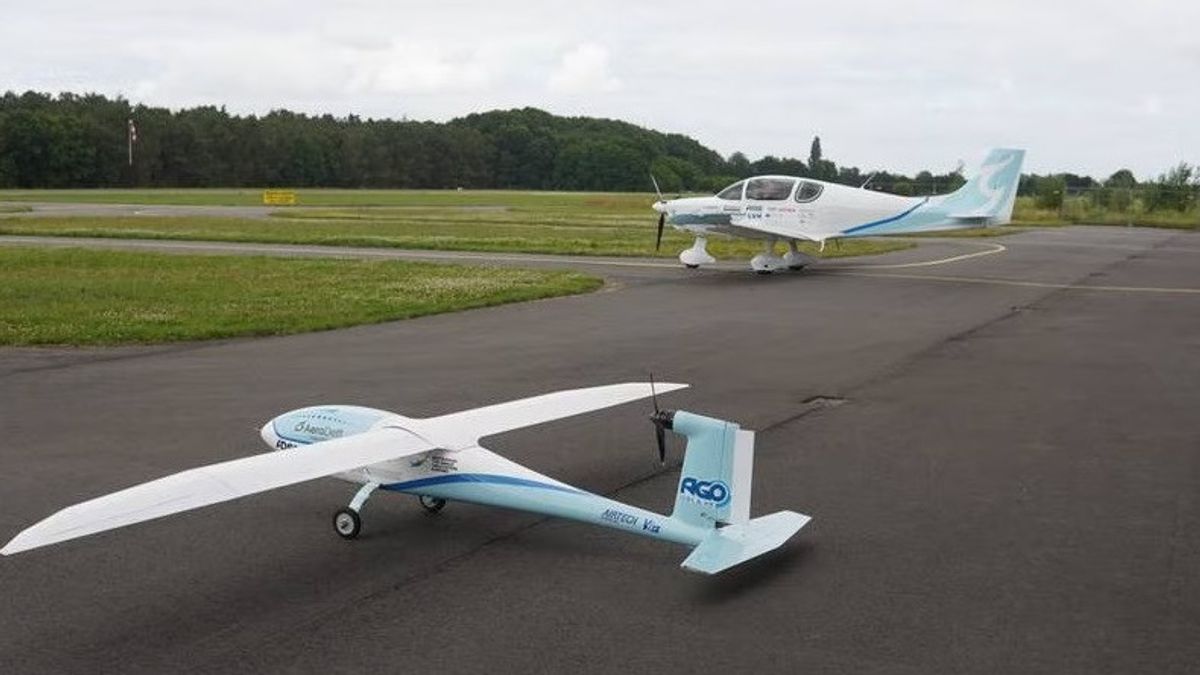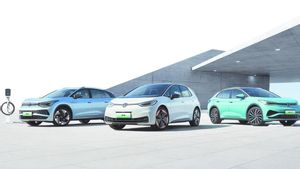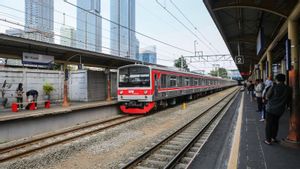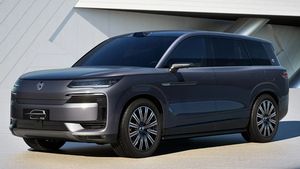JAKARTA - Airline KLM Royal Dutch Airlines in collaboration with a group of students from the Delft University of Technology in the Netherlands built hydrogen-powered aircraft.
As part of Project Phoenix, airlines and student groups AeroDelft will seek to develop and test hydrogen-powered aircraft that will provide insight into how alternative energy sources can be applied to the aviation industry, KLM said.
This can include certification, regulation, and infrastructure. The technology under development still faces many challenges, including distribution and transportation of liquid hydrogen.
"KLM and AeroDelf share the idea that air travel is very important for humans and various sectors, but aviation innovation is important," KLM said, as reported by The National News June 1.
"KLM started a collaboration with a team of AeroDelft students to become part of various ecosystems around future technology, such as flying with hydrogen," the airline continued.
The global aviation industry seeks to reduce carbon dioxide emissions by using new technologies and alternative forms of fuel, amid a push towards sustainable options to reduce global warming.
In October, members of the International Civil Aviation Organization agreed to set 2050 as their deadline for achieving net zero carbon emissions for air travel an important agreement that begins this industrial clock.
Flights accounted for more than 2 percent of carbon dioxide emissions by 2021, the International Energy Agency said in February.
If you want to achieve the zero emission target by 2050, it is necessary to make technical improvements, the agency said.
The global aviation industry could use 15 to 20 percent of the world's hydrogen supply projection of 600 million tonnes by 2050, for sustainable aviation fuel production and to power new aircraft, the International Air Transport Association said in December last year.
Project Phoenix consists of several phases. The first phase involves the development of the drone, the Phoenix prototype, which will serve as a "stepping stone" towards the development of aircraft using hydrogen gas in the second phase and liquid hydrogen-powered aircraft in the third phase.
The Phoenix Full Scale, which will use liquid hydrogen during the 2024 test, is a Sling 4 two-seater aircraft made by South Africa's Sling Aircraft manufacturer. It will have a maximum takeoff weight of 920kg and a wingspan of 10m, according to the AeroDelft website.
While the AeroDelft prototype drone conducted its first test flight in 2022 and aims to make flights powered by hydrogen and liquid hydrogen, according to its website. This runs on electric motors powered by liquid hydrogen and fuel cell technology. The 2022 test determines whether it can fly with liquid hydrogen and is controlled from the ground.
Meanwhile, the Phoenix Full Scale is scheduled to fly on hydrogen gas this year and another with liquid hydrogen power by 2024, he said.
AeroDelft has built a framework for a full-scale model and is testing the hydrogen system inside that framework.
"Together we will work hard to realize new and innovative technology and educate future engineers," said Wouter van der Linden, manager of the AeroDelft team.
The English, Chinese, Japanese, Arabic, and French versions are automatically generated by the AI. So there may still be inaccuracies in translating, please always see Indonesian as our main language. (system supported by DigitalSiber.id)













